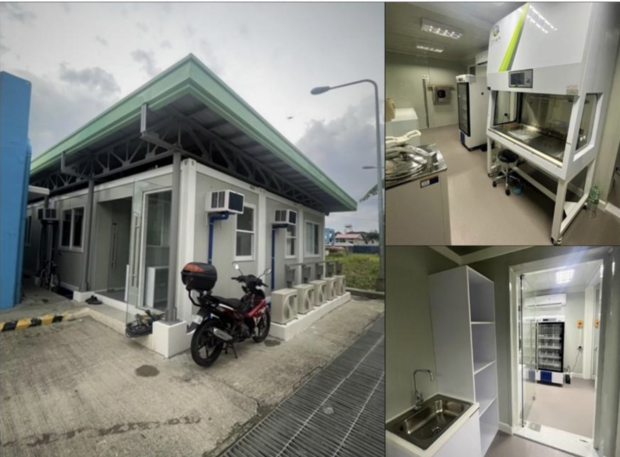
Manila Water is set to start surveillance of wastewater for SARS-CoV-2. As part of Manila Water’s COVID-19 response, it is set to begin operations of its first-ever molecular laboratory to capture the presence of SARS-CoV-2 in wastewater. The facility is designed to detect and quantify the virus in wastewater using polymerase chain reaction (PCR) machines, which are capable in amplifying small segments of DNA or RNA to an amount large enough to be studied in detail. Contributed photo
MANILA, Philippines — In an initiative to mitigate the spread of COVID-19, the east zone concessionaire Manila Water prepares to operate its first molecular laboratory that monitors the presence of SARS-CoV-2 in wastewater.
Manila Water Laboratory Services (MWLS) head Joy De Vera said the new facility is expected to expand the capacity of MWLS to detect SARS-CoV-2 virus in its wastewater treatment systems and generate data for public health use.
She added that the project is part of the company’s COVID-19 response and is aimed to detect and quantify the SARS-COV-2 in wastewater using polymerase chain reaction (PCR) machines that are efficient in amplifying small segments of DNA or RNA.
“These data will be complementary to the current clinical testing and reports of confirmed positive cases,” De Vera added.
Meanwhile, Manila Water Research and Development head Emmanuel Jimenez emphasized the key benefits of this project to communities.
“Through this facility, they will have access to the game-changing technique and technology in tracking local outbreaks of COVID-19 or what is called ’wastewater-based epidemiology’ (WBE). Also, data to be generated in this molecular lab can help communities formulate actions in mitigating COVID-19 in its early stages of emergence or re-emergence as WBE can detect the virus even before people show symptoms,” Jimenez said.
He also adds that since wastewater sample contains waste from numerous individuals, the community will have access to a cost- and time-efficient screening approach to determine the level of infection not only of COVID-19 but other possible emerging and future threats.
Manila Water affirms that these are complimentary to current efforts by the LGUs to address this pandemic. Operating the molecular laboratory also allows the company to provide services beyond its regular wastewater treatment and operations.
RELATED STORY:
Manila Water eyes local, international expansion

